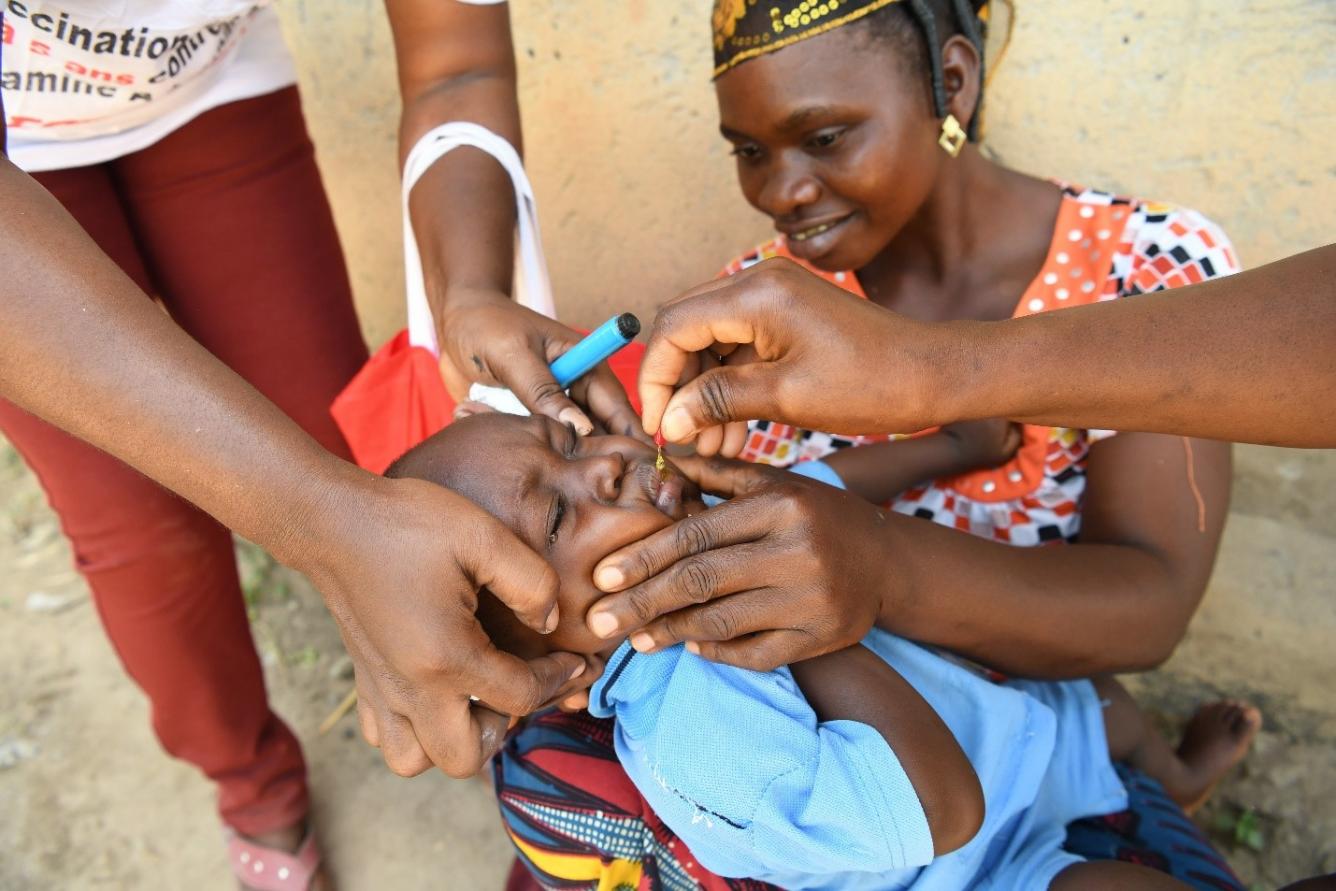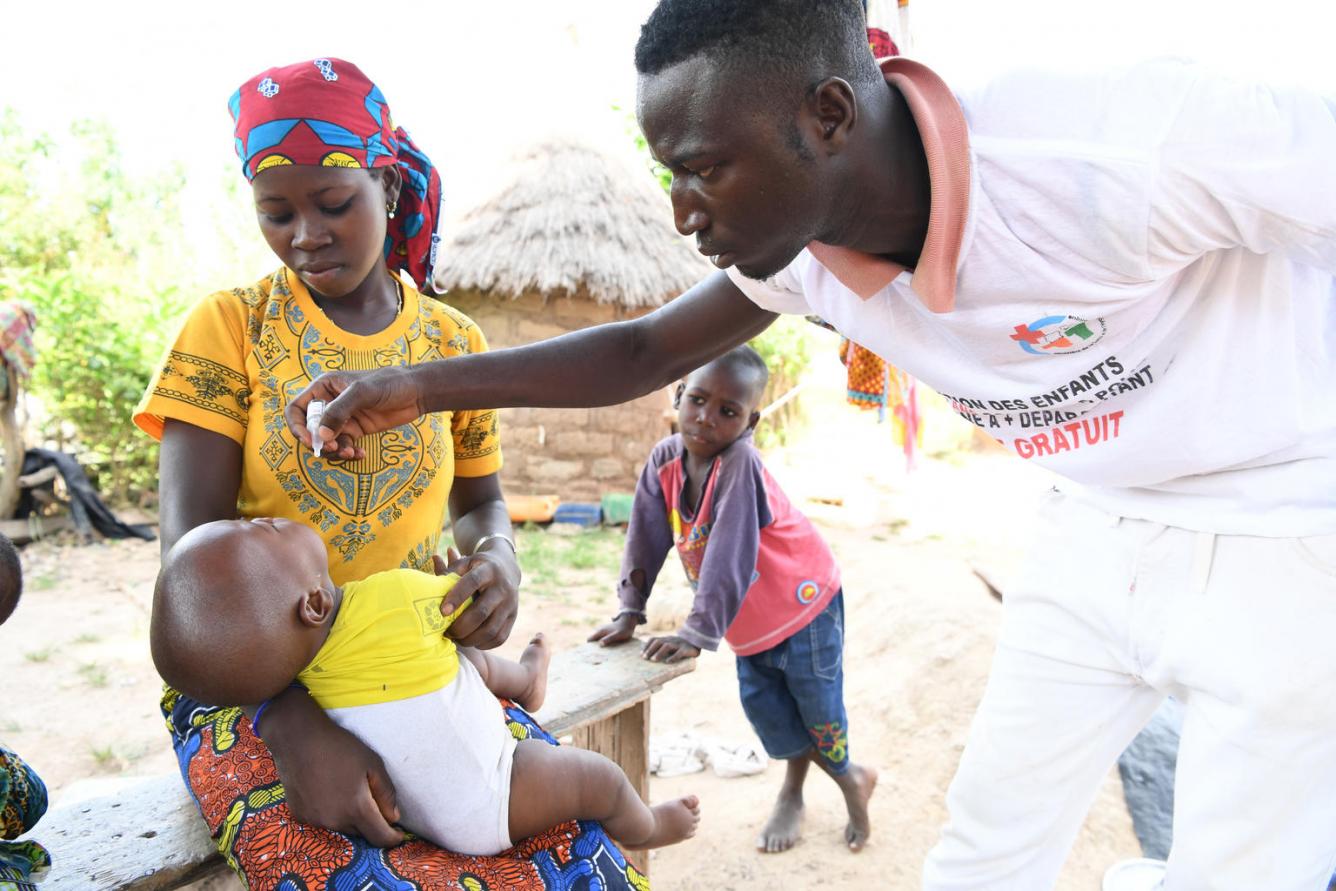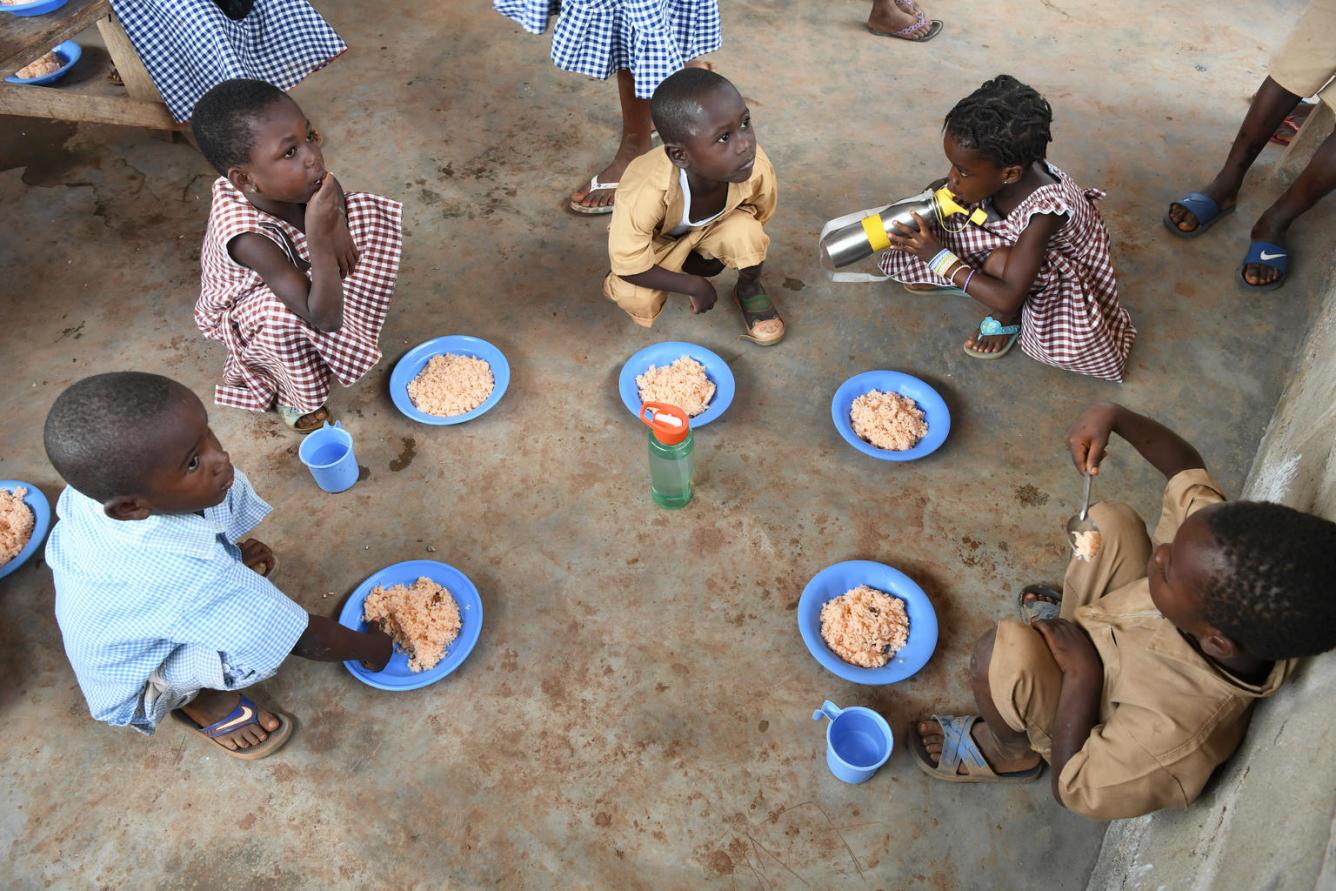The first one thousand days of a child’s life are critical for his or her future. Canada contributes to ensuring that every Ivorian child is born and grows up healthy.
Vitamin A: A drop that saves lives

Why is vitamin A important?
Vitamin A deficiency affects about one third of children living in low- and middle-income countries, mainly in Sub-Saharan Africa and South Asia. Vitamin A deficiency weakens the immune system and increases the risk of children developing and dying from infections such as measles and diarrheal diseases.

“Micronutrient deficiencies such as vitamin A are related to diets that are of poor quality or lack diversity. This is often referred to as “hidden hunger” because although the child does not feel hungry, the body does not get the nutrition required for proper development. This is particularly important in the first one thousand days of a child’s life, because during this period the brain is developing rapidly, forming up to 1,000 new connections per second. A lack of proper nutrition and care during this period can have an irreversible impact on a child’s development and a decisive influence on his or her future,” explained Anne-Sophie Le Dain, Nutrition Specialist, UNICEF Côte d’Ivoire.

Malnutrition in Côte d’Ivoire
In Côte d’Ivoire, 200 children under the age of five die every day from preventable and treatable diseases. A single dose of vitamin A helps develop greater resistance to disease and can save lives. Thanks to the contribution from the Government of Canada, over the past year in Côte d’Ivoire more than seven million children like Abdoulaye received the two doses of vitamin A they need to protect them.
Although Côte d’Ivoire is a rich agricultural region, the nutritional situation, related to both practices and the environment, is alarming. More than one in five children in Côte d’Ivoire suffer from stunting. In the north of the country, that number is close to one in three. And the problem begins well before birth. Sixteen per cent of children are born with a lower-than-average birth weight.

UNICEF’s mission
UNICEF and its partners continue to intervene during the first one thousand days, during pregnancy and the first two years of every child’s life—the most fragile and critical period—to ensure that every child is born and grows up healthy, has access to proper nutrition, education, clean water and a healthy environment, and is protected from violence and exploitation, regardless of where he or she lives or comes from.
Giving every child a good start in life.

Sophie Chavanel is Chief of Communications for UNICEF in Côte d’Ivoire and originally from Quebec City. A former journalist at Radio-Canada, she is now responsible for helping to give a voice to the children of Côte d’Ivoire, including the most vulnerable and marginalized. For every child, a champion.
